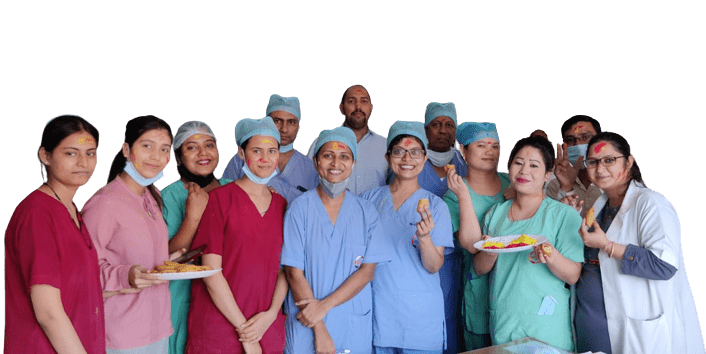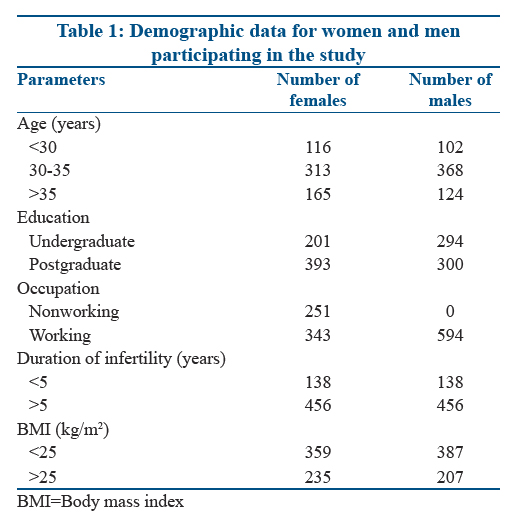Need Help?
We are here to help.
We care for each one who come to us with hope in their hearts.

Original Research Paper Published on Journal of Human Reproductive Sciences
Context: The reduction or loss of natural fertility is deeply painful in couples that are considering the use of donor gametes or donor embryos. This is the first study to assess the acceptability of donor gametes or embryos in Indian population.
Aim: The aim of the study was to assess the attitude toward egg, sperm, and embryo donation among Indian the infertile couples.
Settings: This study was conducted at infertility outpatient clinic New Delhi.
Design: This study was a cross‑sectional study.
Materials and Methods: From October 1, 2015, to December 31, 2015, a total of 594 infertile couples were assessed. A well-structured questionnaire was given to each infertile couple at the first visit. Both female and male partners had filled the questionnaire separately. The acceptance rate of couple toward the egg, sperm, and embryo donation was assessed.
Results: Out of 594 female partners, 118 females agreed for donor eggs (19.9%), 116 females agreed for donor sperms (19.5%), and 93 females agreed for donor embryos (15.7%). Out of 594 male partners, 262 males agreed for donor eggs (44.1%), 90 males agreed for donor sperms (15.2%), and 141 males agreed for donor embryos (23.7%).
Conclusions: The overall acceptance of donor eggs, sperms, or embryos in Indian infertile couples is low. The acceptance rate of females for donor eggs or donor sperms is same, but males are more amenable to accept donor eggs than donor sperms. This is the first study to assess the acceptability of donor gametes or embryos in Indian population.
Infertility is a medical condition, which is a stressful and unexpected experience by a couple attached with social dimension. The reduction or loss of natural fertility is further deeply painful in couples that are considering the use of donor gametes or donor embryos. Infertility is estimated to affect 8%–12% of couples worldwide.[1,2] The WHO estimates the overall prevalence of primary infertility in India to be between 3.9% and 16.8%.[3] For most of the couples that seek treatment for infertility, when told about the severe male or female factor problem, it is a shocking response for them. They experience low self‑esteem, stigma, and depression.
The donor sperms are used in cases of nonobstructive azoospermia and genetic disorders in males. The donor eggs are used in cases of poor ocyte quality and poor oocyte reserve due to advanced age, due to ovarian surgery, exposure to chemotherapy and radiotherapy, and also in genetic disorders. Similarly, the donor embryos are being used in untreatable infertility involving both partners and in cases of genetic problems in both of them.
The aim of the present study was to assess the attitude toward egg, sperm, and embryo donation among the Indian infertile couples.
During the period from October 1, 2015, to December 31, 2015, the 594 couples with fertility problems that visited our center for consultation or treatment received a well‑structured questionnaire at first visit. Both female and male partners had filled the questionnaire separately.
The participants completed the questionnaires that contained questions about sociodemographic background, questions detecting emotional reactions to infertility‑related stresses, social history, and the acceptance of couple toward the egg, sperm, and embryo donation. The acceptance rate of couple toward the egg, sperm, and embryo donation was assessed.
The demographic data for the participating couples were shown in Table 1.
The assessment of acceptance toward donor eggs, sperms, and embryos in females and males was shown in Table 2. Out of 594 couples, 19.9% females and 44.1% males agreed for donor eggs, 19.5% females and 15.2% males agreed for donor sperms, and 15.7% females and 23.7% males agreed for donor embryos.


Infertility causes a lot of grief, stress, and sadness among men and women. The couples treated with their own gametes may find it easier to make the decision to agree on in vitro fertilization (IVF) treatment and the waiting time before treatment could also be much shorter. However, most of the cases where the couples that had been advised for treatment with donation program expressed resistance against the treatment. However, in some cases, the couples easily accept this donor program. In a study on oocyte recipient couples, both men and women who had been through oocyte gamete treating program were satisfied and stable in their opinion.[4] Similarly, a study on couples receiving donated sperm showed overall stable quality of relationship and does not differ from couples undergoing IVF treatment with own gametes.[5] In countries like Sweden, the recipient couples of donated sperm and oocytes were relatively open about their treatment and support disclosure to offspring.[6]
But in India, the couples are still not so open‑minded to accept the donor gametes or donor embryos. Use of donor program in India is usually a matter of secrecy, as couples do not want to reveal their infertility cause and disturb the social and biological connection between the mother, father, and child.[7] It has been suggested that the medical community takes the use of donated gametes lightly and there are practices such as sperm mixing, transplantation of embryos without consent or the discarding of embryos by mistake.[8]
According to Indian Council of Medical Research (ICMR) country guidelines, for regulation of assisted reproductive technology (ART) clinics in India, no ART procedure will be done without the spouse’s consent; use of sperm or eggs donated by a relative or known friend
of either the wife or husband shall not be permitted; the ART clinic will be responsible to obtain sperm from appropriate banks and eggs and provide the couple with nonidentifiable information regarding them.[9] Hence, the donor gametes and donor embryos should be used
by providing information, counseling, ensuring informed consent, addressing exploitation and ization, ensuring monitoring, proper documentation, and transparency.[10]
Infertility is a life crisis for couples, with many visible and invisible losses. However, according to this study, the overall acceptance of donor eggs, sperms, or embryos Indian in infertile couples is still low. The acceptance rate of females for donor eggs or donor sperms is same, but males are more amenable to accept donor eggs than donor sperms. This is the first study to assess the acceptability of donor gametes or embryos in Indian population.
Financial support and sponsorship
Nil.
Conflicts of interest
There are no conflicts of interest.
We care for each one who come to us with hope in their hearts.

Disclaimer – Dr Kaberi is not associated with any Hosptial/Clinic other than “Advanced Fertility and Gyne Center (AFGC)”. AFGC has only four centers at present 1. “Lajpat Nagar” 2. “CR Park Delhi” 3. “Noida” 4. “Gurgaon“.